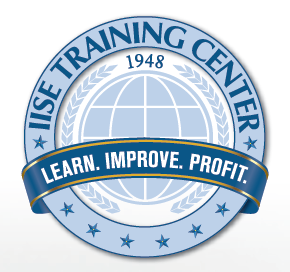Six Sigma Green Belt Certification
In collaboration with the IISE (Institute of Industrial & Systems Engineers)

Green Belts are Six Sigma practitioners that do process and product improvement project work. The focus of Six Sigma is to reduce and control variation and waste in processes based on the importance to the customer and the business needs.
This Six Sigma Green Belt training is a three-day course that will provide an in-depth understanding of Six Sigma and show how to eliminate defects through fundamental process knowledge. You’ll be able to quantify the critical quality issues in a company and then use six sigma tools to develop solutions. On the last day of the course, participants will take the IISE Six Sigma Green Belt Exam and those who pass will receive a Six Sigma Green Belt Certificate*.
Space is available on a first-come, first-serve basis.
- Six Sigma Philosophy
- DMAIC
- Basic Statistics
- Statistical Process Control
- Process Capability
- Financial Implications and Root Cause Analysis
Dates: Friday, November 7 - Sunday, November 9, 2025
Times:
Friday: 4 p.m. - 8 p.m.
Saturday: 9 a.m. - 5 p.m.
Sunday: 9 a.m. - 5 p.m.
Location:
Buckman Hall, Rm. 219
University of New Haven, Main Campus
West Haven, CT
- Student: $470 (early bird - Deadline 10/24/2025)
- Student: $495 (regular - after 10/24/2025)
- Non-Student/Professionals: $795
To register: Contact Dr. Nadiye O. Erdil at NErdil@newhaven.edu
*ISO 13053 Compliant
**Normal IISE program registration fee is $1,255 for IISE members & $1,625 for non-members